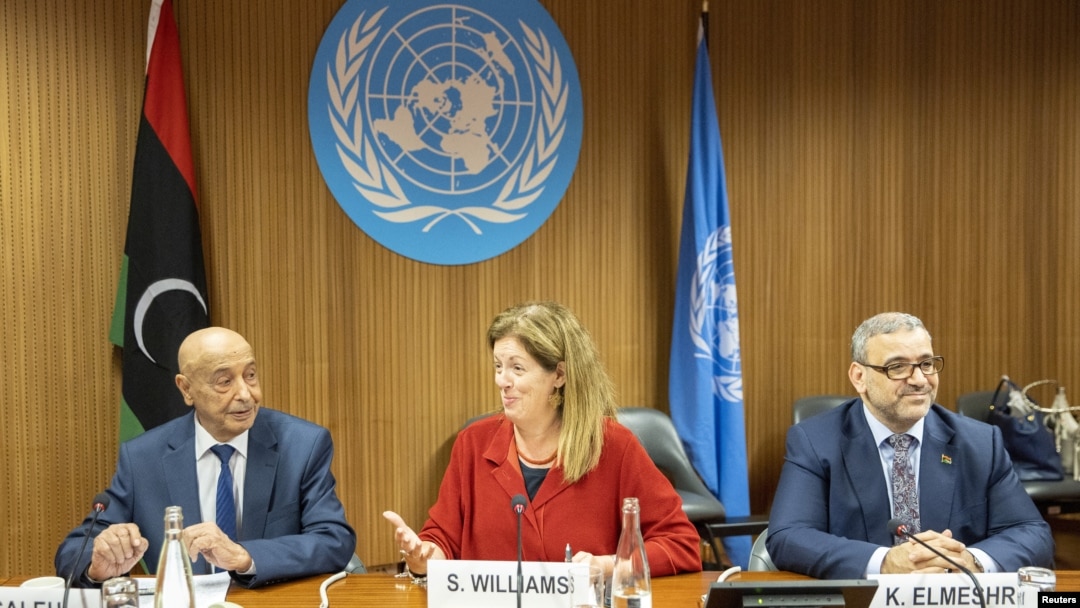Early Wednesday, envoys of Libya's factions said after more than two weeks of talks in Morocco they had agreed on the legal steps required for new elections.
But they stopped short of signing an agreement, indicating that they had differences that still need to be resolved.
On Thursday, the United Nations Support Mission in Libya (UNSMIL) said in a statement it "takes note" of the outcome of the Morocco talks.
It said UNSMIL will work "to facilitate a process amongst all actors to address the contested elements of the electoral framework" with the aim of securing "the necessary political agreement on the path to elections."
The U.N. envoy to Libya, Abdoulaye Bathily, did not attend the talks in Morocco, but on Thursday the UNSMIL statement urged "all players to refrain from delay tactics aimed at prolonging the stalemate."
The U.N. appeal was supported by representatives in Tripoli of both the United States and the European Union.
The U.N. mission urged everyone involved "in a spirit of compromise, to address all outstanding issues and create a safer and more conducive environment for the holding of elections in 2023."
Elections in the North African country had been due in December 2021, but were never organized as disputes persisted on key issues including who should stand in the polls.
Among the contested points are the candidacy of dual nationals and soldiers.
Eastern Libya strongman Khalifa Haftar also hold U.S. citizenship, and his detractors accuse him of seeking to restore military dictatorship in Libya.
Libya has been torn by more than a decade of stop-start conflict since a 2011 revolt toppled strongman Moammar Kadhafi, with myriad militias forming opposing alliances backed by foreign powers.
The country remains split between a nominally interim government in Tripoli in the west, and another in the east backed by "Field Marshal" Haftar.


